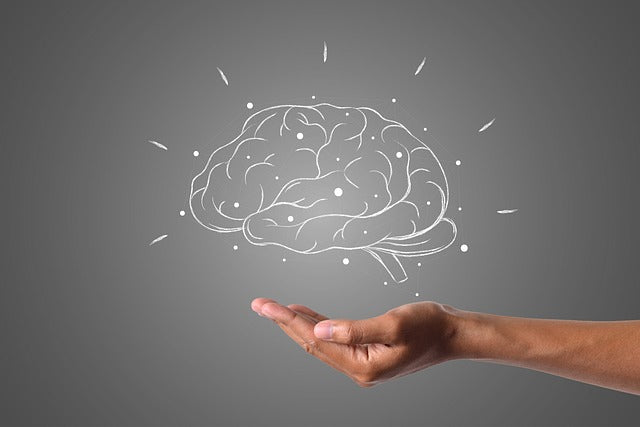Keeping Holiday Stress in Check
It’s that time of year when, no matter what we do, we often suffer some aspect of stress. For some, winter weather may tax the spirit and drain our energy. For others, it may be the stress of preparing for, cooking for, and socializing at holiday gatherings. Yet others may be encountering the holidays while struggling with family illness or feuds which stress and burden the heart. One holiday on top of another, there hardly is time (or daylight) to do all that we need to do, and then darkness hits and it feels like it is time for bed. How can we make it through the next month of celebration and another couple months of darkness when the demands on our lives feel so challenging already?
Nutritional Support for Well-Being
It is important to try to get regular exposure to daylight and exercise as well as adequate rest during the winter months. Just as many animals hibernate, the human internal clock is dialed into sleep more when there is more darkness.1 This doesn’t change the fact that many of us still have to fit the same amount of things into our day, but it may ease the worry we feel about being more tired in the darker months! Listening to the body’s clock helps to restore our energy for the times we need it. Supplemental support with a quality multivitamin or B complex vitamins can help the body to get through the winter slump. Many of the B vitamins as well as vitamin D and C support a balanced mood, which is challenged by the winter for many.2,3,4 Vitamin C and B complex vitamins support adrenal function and neurotransmitter metabolism,5,6 while vitamin D and vitamin Csupport healthy immune system function.7,8,9
Support from Adaptogens
Adaptogens are substances, primarily herbs, which help the body adapt and respond to stress. Many of these herbs are roots, such as the well-known ginseng and licorice. Other adaptogens include rhodiola, maca, ashwagandha, andschisandra berry. Adaptogenic herbs have a history of use in many cultures for thousands of years. Adaptogens have an effect on the body’s hypothalamus-pituitary-adrenal (HPA) axis, and also can impact mood, memory, concentration, sleep, and immune system function.10,11 Many of these herbs also have antioxidant effects.12 Adaptogens, particularly in combination, can have a tonic effect – supporting increased exertion when needed, and helping the body to turn off when the work is done.13 There also are adaptogenic herbs such asshatavari, an Ayurvedic herb, and yohimbe with more specific “female” or “male” effects, supporting normal hormonal balance and reproductive function.14,15,16 Many individuals find increased motivation and energy throughout the day with the use of adaptogenic herbs.
Keeping Things Calm!
Finally, in addition to supporting the energy needed to make it through the holidays (and winter!), many are looking for healthy approaches to help them wind down in the evening and throughout the day. A combination of gamma-amino butyric acid (GABA) with L-theanine is an excellent choice, as the non-sedating yet relaxing effects can provide benefit throughout the day in times of stress or anxiety. Both GABA and L-theanine support increased alpha wave activity in the brain,17,18 and have been shown to reduce the physiological and emotional response to stress.19,20,21 L-theanine also has been observed to increase expression of brain-derived neurotrophic factor (BDNF),22 a protein that increases neural plasticity and promotes neurogenesis,23 possibly helping you to remember the long-winded story from your beloved great aunt or uncle told after a long, belly-filling dinner.
To learn more, read on at:
References:
1 Wehr TA. Melatonin and seasonal rhythms. J Biol Rhythms. 1997 Dec;12(6):518-27. View Abstract
2 Amr M. Efficacy of vitamin C as an adjunct to fluoxetine therapy in pediatric major depressive
disorder: a randomized, double-blind, placebo-controlled pilot study. Nutr J. 2013 Mar;12(1):1. View Full Paper
3 Frandsen TB, Pareek M, Hansen JP et al. Vitamin D supplementation for treatment of seasonal affective symptoms in healthcare professionals: a double-blind randomised placebo-controlled trial
4 Coppen A1, Bolander-Gouaille C. Treatment of depression: time to consider folic acid and vitamin B12. J Psychopharmacol. 2005 Jan;19(1):59-65. View Abstract
5 Patak P, Willenberg HS, Bornstein SR. Vitamin C is an important cofactor for both adrenal cortex and adrenal medulla. Endocr Res. 2004 Nov;30(4):871-5. View Abstract
6 Ralli EP, Dumm ME. Relation of pantothenic acid to adrenal cortical function. Vitam Horm. 1953;11:133-58. View Abstract
7 Hemilä H, Chalker E. Vitamin C for preventing and treating the common cold. Cochrane Database Syst Rev. 2013 Jan 31;1:CD000980. View Abstract
8 Shaik-Dasthagirisaheb YB, et al. Role of vitamins D, E and C in immunity and inflammation. J Biol Regul Homeost Agents. 2013; 27(2):291-295. View Abstract
9 Ginde AA, Mansbach JM, Camargo CA Jr. Association between serum 25-hydroxyvitamin D level and upper respiratory tract infection in the Third National Health and Nutrition Examination Survey. Arch Intern Med. 2009 Feb 23;169(4):384-90. View Full Paper
10 Panossian A, Wikman G. Evidence-based efficacy of adaptogens in fatigue, and molecular mechanisms related to their stress-protective activity. Curr Clin Pharmacol. 2009 Sep;4(3):198-219. View Abstract
11 Panossian A, Wikman G. Effects of Adaptogens on the Central Nervous System and the Molecular Mechanisms Associated with Their Stress-Protective Activity. Pharmaceuticals (Basel). 2010 Jan 19;3(1):188-224. View Full Paper
12 Davydov M, Krikorian AD. Eleutherococcus senticosus (Rupr. & Maxim.) Maxim. (Araliaceae) as an adaptogen: a closer look. J Ethnopharmacol. 2000 Oct;72(3):345-93. View Abstract
13 Panossian AG. Adaptogens: Tonic herbs for fatigue and stress. Alternative & Complementary Therapies. 2003 Dec 1;9(6):327-31. View Abstract
14 Velavan S, Nagulendran KR, Mahesh R, Begum VH. Phcog Rev.: Plant Review The Chemistry, Pharmacological and Therapeutic Applications of Asparagus racemosus-A Review. Pharmacognosy Reviews. 2007 Jul;1(2):350-60. View Full Paper
15 Riley AJ. Yohimbine in the treatment of erectile disorder. Br J Clin Pract. 1994 May-Jun;48(3):133-6. View Abstract
16 Rowland DL1, Kallan K, Slob AK. Yohimbine, erectile capacity, and sexual response in men. Arch Sex Behav. 1997 Feb;26(1):49-62. View Abstract
17 Yoto A, Murao S, Motoki M, et al. Oral intake of γ-aminobutyric acid affects mood and activities of central nervous system during stressed condition induced by mental tasks. Amino Acids. 2012;43(3):1331–1337. View Abstract
18 Kakuda T, Nozawa A, Sugimoto A, et al. Inhibition by Theanine of binding of [3H]AMPA, [3H]kainate, and [3H]MDL 105,519 to glutamate receptors. Biosci Biotechnol Biochem. 2002;66(12):2683–2686.
19 Abdou AM, Higashiguchi S, Horie K, et al. Relaxation and immunity enhancement effects of gammaaminobutyric acid (GABA) administration in humans. Biofactors. 2006;26(3):201–208. View Abstract
20 Lu K, Gray MA, Oliver C, et al. The acute effects of L-Theanine in comparison with alprazolam on anticipatory anxiety in humans. Hum Psychopharmacol. 2004;19(7):457–465 View Abstract
21 Kimura K, Ozeki M, Juneja LR, et al. L-Theanine reduces psychological and physiological stress responses. Biol Psychol. 2007;74(1):39–45. View Abstract
22 Wakabayashi C, Numakawa T, Ninomiya M, et al. Behavioral and molecular evidence for psychotropic effects in L-Theanine. Psychopharmacology (Berl). 2012;219(4):1099–1109. View Abstract
23 Binder DK, Scharfman HE. Brain-derived neurotrophic factor. Growth Factors. 2004;22(3):123–131. View Abstract




